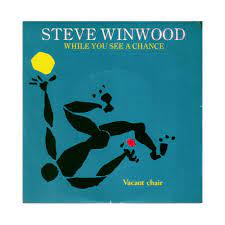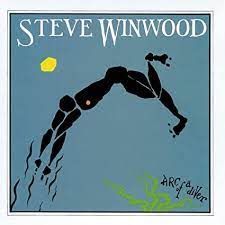Welcome back to Turntable Talk! Thanks once again to all the regular readers and welcome to any new ones. If you’re keeping count, today begins our 19th instalment…if you’re wondering about past topics, I have previous topics indexed here. For any new readers, briefly, on Turntable Talk we have a number of guest columnists from other music sites, sounding off on one particular topic. This month, our topic is A Design For Life. I’ve asked our writers to highlight a song that sums up a great personal mantra, or philosophy of life. A song that tells how to live better, basically. I hope you’re as curious to see what they come up with as I am!
Today, we wrap it up with a pick by me, your host!
First, thanks so much to each of my guest writers , and to you for reading! I was genuinely curious to see what they would come up with and they didn’t let us down with interesting songs that each made a valid point worth remembering.
For me, there are many songs that I can relate to philosophically. Many involve just being a good person. Keith’s pick put me in mind of “Kind and Generous” by Natalie Merchant, a beautiful song and reminder of how much one special person who’s always there for you can matter and make your life so much better and more meaningful. And for basic, simple truisms, don’t forget “All You Need Is Love” by the Beatles, a simple but powerful John Lennon message that makes every bit as much sense now as it did over 50 years ago.
The first one that actually came to mind though when I picked the topic was “Don’t Look Back” by the Fine Young Cannibals. It’s a great song that many seem to have forgotten by that band that briefly seemed to ruled the pop world then disappeared. Now, the lyrics in their entirety might seem a little whiny and negative, him talking about the things he didn’t have that money can buy, but the chorus often echoes through my head – ‘baby baby, don’t look back – it won’t do no good.” It fits. I’ve often felt the secret for a good life is to no little degree remembering that phrase. Unless you can build a time machine, it doesn’t really do anything good by wasting time looking back and wishing ruefully that things were different. We all make some decisions that later on, we probably regret. Some big (the ones we probably spend most time fretting about), many tiny but equally meaningful. But, since A) we can’t change them now, and B) we don’t really know that the other path we didn’t take would be so much better in the end, it’s not the most useful usage of your time. You can’t change it so leave it alone. That said, I’m not saying NEVER look back and think about what could have been different or be oblivious to your mistakes, but recognize them and move on. Spend you time making the here and now better instead of worrying about years gone by.
And as much as I liked that theme, the song that ended up being mine was one that I’ve loved since I first heard it over 40 years ago that not only sounds good but is a mantra I have to remind myself to live – “While You See A Chance (Take It)” by Steve Winwood.
His first solo hit song, off his second album (more than a decade after being a teen sensation in the ’60s with Traffic) , Arc of A Diver, for whatever reason did better in Canada than his own UK or the States, going to #3. I’d love the song if it had missed the charts, but it being so big in ’81 when I was a teen meant I heard it a lot and took it to heart. Or tried to.
Indeed, as a single guy so much of the time when I was youngish, the refrain of “while you see a chance, take it – find romance” was something I needed to keep in mind. I was always on the shy side and frankly, probably missed out on a lot of chances back when I was a young buck. Eventually it all worked out for the better, now I’m in my 50s and happily settled down with a wonderful woman I love, but it took awhile… and to get here, I had to take a chance . A big one. With my love living in a different country, over a thousand miles from home, I had to take a chance on a long-distance relationship and then on taking trips (I wasn’t one who’d had many vacations as an adult) to go see her, then eventually to relocate to be with her. Not something a cautious, shy-ish guy was likely to do. But I saw the chance and took it. That made all the difference.
The same could apply in every other aspect of life. I never was much of a gambler. A two dollar lotto ticket, sure, why not…but I’d get bored quickly after spending ten bucks in a casino and want to leave. The same held true in many other aspects of my life. I can’t number how many jobs I didn’t try for that might have been great, I might have been good in, might have paid well, all because I was too cautious. What if it didn’t work out? Would the commute be too onerous after a few months? Could I return to my old job I might not have even liked if I failed? What would I do if I had to move 100 miles to get the job? Would I miss my friends too much or would my aging mom be too upset if I wasn’t over for Sunday dinners? Too many reasons for me to not take a chance. But some of them, I probably should have.
Opportunity knocks for all of us, but some people more than others. Nevertheless, you have to know to open the door. That knocking is meaningless unless … sing it Stevie… “when you see a chance, take it!”.
By the way, Stevie himself was taking a chance with the single and Arc of a Diver record. He could have, many execs probably told him, should have, hired studio musicians to help him out. But he played it all himself. Every instrument on the song and album, he played. He even played drums on this song… but somehow the tape was erased. So he took a chance to release it as is. He took it and it worked. And had it somehow not worked, well … maybe he would have moved on and figured to himself “don’t look back!”








